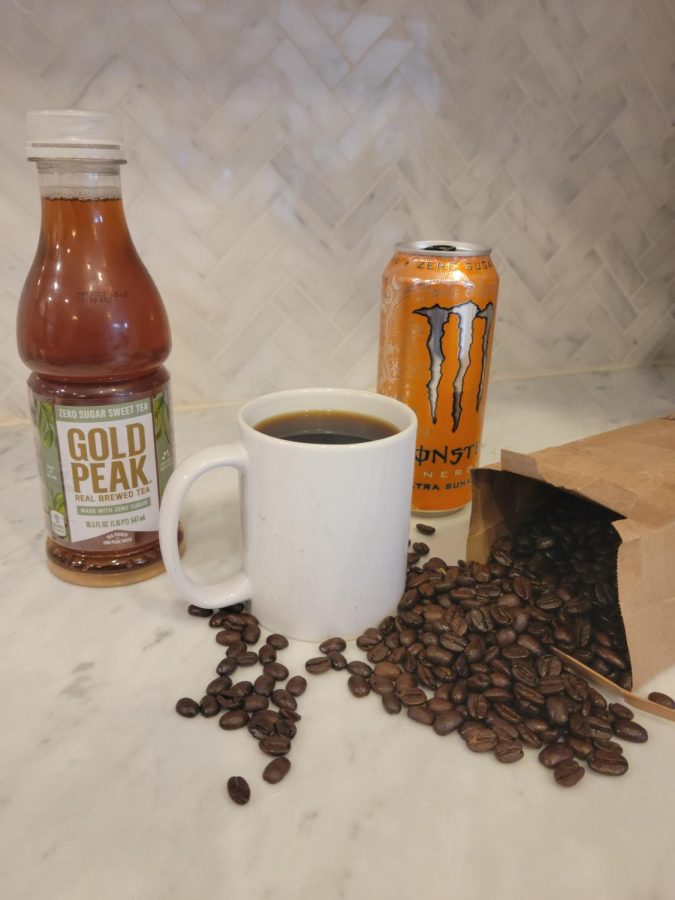Caffeine consumption and the high school student
Teenagers today have access to caffeine in many different forms; some of which can be everyday drinks with surprisingly high levels of caffeine.
January 11, 2022
Teenagers all around the country consume caffeine on a daily basis. Studies published in the American Academy of Pediatrics show that roughly 73% of teenagers consume caffeine in a number of forms, mostly through coffee, energy drinks, and sodas.
When consumed in moderation, caffeine has many benefits for the human mind like increased energy and enhanced memory. However, caffeine also has many unwanted side effects, especially when consumed in large amounts. Large amounts of coffee in adolescents can cause sleeping disorders and increase anxiety levels; caffeine can even go as far as to increase heart rate and cause high blood pressure.
Regular drinking of caffeine can cause a dependence to the stimulant. After a dependence to caffeine develops a person can suffer from symptoms of withdrawal that can range from minor headaches all the way to impaired or slowed performance.
“I drink caffeine both out of habit and because I get headaches when I go without it for too long,” Avery Meeler, a senior, discussed.
“It doesn’t provide me that much energy anymore. When I don’t have caffeine for a few hours I’ll start to get a migraine, so I need to regularly have it to make it through the day,” Meeler followed up.
Caffeinated drinks such as sodas and tea expose children to caffeine potentially starting as early as elementary school. In recent years, statistics have shown a decrease in caffeine consumption in kids younger than eleven. However, there has also been a sharp increase in amounts of caffeine consumed in children ages twelve and older.
“I bring a caffeinated drink with me to school every day,” Meeler added.
A very large percentage of high school students who regularly consume caffeine bring caffeinated beverages with them to school. Caffeine consumption early in the morning is very common.
Studies show that more than 80% of adults drink coffee every morning. Morning caffeine consumption is very common among high school students mostly due to lack of sleep and early classes.
“I was definitely in middle school when I started drinking it. It was definitely more influenced by those around me who drank it like my mom or older kids,” senior Rae Brewer commented.
Brewer also continued on to say, “I wouldn’t say caffeine has that much of an effect on me anymore, so my mood can swing whether or not caffeine will drain my energy or pep me up.”
Over time large amounts of caffeine consumption the human body begins to build up a tolerance. People then have to drink more caffeine for it to be effective and in many cases have symptoms when they do not consume caffeine.
It is recommended that adolescents should have no more than 100mg of caffeine per day. Meaning that having one eight ounce cup of coffee meets that limit. An energy drink can have up to 200mg of caffeine in one serving. Many high school age students drink more than one caffeinated drink per day and potentially surpass the limit two or more times per day.
Caffeine is not inherently dangerous for adolescents; there are many benefits to drinking small amounts of caffeine. When consumed in moderation caffeine can be a positive thing in a high school environment, but when consumed in large amounts it can come with many unintended consequences.





























